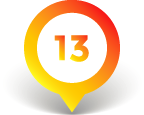

My aim is to embark on this trip with and ensure that it will be an enjoyable and fulfilling experience for all of us. I will always be available to discuss any matters that may arise during the semester. You can reach me by email ([email protected]), phone (+35726843614), or in person at my office (office 223). I will make sure to answer your email within 24 hours. I look forward to seeing you soon and best wishes for the new academic semester!
Kind regards,
Dr. Eleni Gavriil
Lecturer in International Economic Law and Human Rights

International economic law regulates the international economic order or economic relations among nations. However, the term ‘international economic law’ encompasses a large number of areas.
The primary goal of this course is to introduce you to International Economic Law. We will have the opportunity to study the two basic pillars of International Economic Law: International Trade Law and International Investment Law. More specifically, you will be taught the international legal framework that concerns the cross-border activity of goods, services, intellectual property in the context of the World Trade Organization and of bilateral and multilateral agreements.
In this context, the course aims to explore the law that governs international economic relations and transboundary economic conduct by States, international organizations and private actors.
Our objective is to:
The course is directly linked with the following learning outcomes of the program:
PLO1. explain the basic features of the contemporary international system.
PLO4. describe the interdependence between international relations and security in the 21st century.
PLO5. identify the main sources of instability and insecurity in the international system.
PLO6. analyze international issues and formulate arguments in a clear, concise and effective manner, both orally and in writing.

|
1. Knowledge |
C.O.[1]. define the goals, values, principles and fundamental characteristics of international economic cooperation. C.O.[2]. recognise the sources of International Economic Law. C.O.[3]. describe the function of the World Trade Organization and its agreements that govern international economic relations. C.O.[4]. identify the importance of investments, the regulatory framework for foreign direct investments and the basic notions of Investment Law. |
|
2. Skills |
C.O.[5]. practice legal analysis and problem-solving |
|
3. Competencies (Responsibility and autonomy) |
C.O.[6] participate in a working group that reviews the challenges that International Economic Law faces that concern public law issues such as human rights and environmental issues |


|
Graded Interactive Activities |
|||
|
Activity |
Week |
Deadline |
|
|
1 |
Role play |
3 |
16 March |
|
2 |
Lumi |
4 |
16 March |
|
3 |
Lumi |
7 |
6 April |
|
4 |
Simulation activity |
10 |
16 May |
Topic: The Protection of Foreign Direct Investments in Armed Conflicts
Objective: Analyze the legal mechanisms for protecting Foreign Direct Investments (FDI) during armed conflicts. You will explore how international investment law addresses safeguarding investments during such periods of instability and violence.
Instructions
World Limit: 1200 words
Deadline: 12 May 2025
Reference style: Chicago reference system
Submitting your assignment: The assignment must be uploaded on Moodle
Format: Include your name, course, essay topic
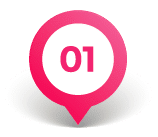
Video activity.
First, you will watch the video
|
|
The art and science of asking questions is the source of all knowledge. Thomas Berger |
At our University, we envision the creation of a community of knowledge-seeking. There is a difference between knowing something and understanding it in depth. How much do you understand the information you have been offered?
Express your questions and contribute to the creation of a vibrant group of exploration of scientific truth.
Do you think you can explain what you have learned? Become an assistant to your instructor and practice explaining and documenting scientific facts.

|
|
The art and science of asking questions is the source of all knowledge. Thomas Berger |
At our University, we envision the creation of a community of knowledge-seeking. There is a difference between knowing something and understanding it in depth. How much do you understand the information you have been offered?
Express your questions and contribute to the creation of a vibrant group of exploration of scientific truth.
Do you think you can explain what you have learned? Become an assistant to your instructor and practice explaining and documenting scientific facts.
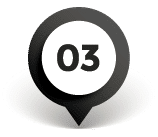
|
|
The art and science of asking questions is the source of all knowledge. Thomas Berger |
At our University, we envision the creation of a community of knowledge-seeking. There is a difference between knowing something and understanding it in depth. How much do you understand the information you have been offered?
Express your questions and contribute to the creation of a vibrant group of exploration of scientific truth.
Do you think you can explain what you have learned? Become an assistant to your instructor and practice explaining and documenting scientific facts.
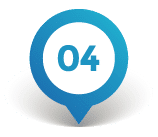
|
|
The art and science of asking questions is the source of all knowledge. Thomas Berger |
At our University, we envision the creation of a community of knowledge-seeking. There is a difference between knowing something and understanding it in depth. How much do you understand the information you have been offered?
Express your questions and contribute to the creation of a vibrant group of exploration of scientific truth.
Do you think you can explain what you have learned? Become an assistant to your instructor and practice explaining and documenting scientific facts.
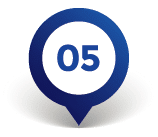
|
|
The art and science of asking questions is the source of all knowledge. Thomas Berger |
At our University, we envision the creation of a community of knowledge-seeking. There is a difference between knowing something and understanding it in depth. How much do you understand the information you have been offered?
Express your questions and contribute to the creation of a vibrant group of exploration of scientific truth.
Do you think you can explain what you have learned? Become an assistant to your instructor and practice explaining and documenting scientific facts.
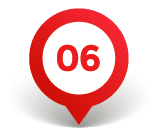
|
|
The art and science of asking questions is the source of all knowledge. Thomas Berger |
At our University, we envision the creation of a community of knowledge-seeking. There is a difference between knowing something and understanding it in depth. How much do you understand the information you have been offered?
Express your questions and contribute to the creation of a vibrant group of exploration of scientific truth.
Do you think you can explain what you have learned? Become an assistant to your instructor and practice explaining and documenting scientific facts.
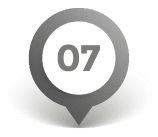
|
|
The art and science of asking questions is the source of all knowledge. Thomas Berger |
At our University, we envision the creation of a community of knowledge-seeking. There is a difference between knowing something and understanding it in depth. How much do you understand the information you have been offered?
Express your questions and contribute to the creation of a vibrant group of exploration of scientific truth.
Do you think you can explain what you have learned? Become an assistant to your instructor and practice explaining and documenting scientific facts.


|
|
The art and science of asking questions is the source of all knowledge. Thomas Berger |
At our University, we envision the creation of a community of knowledge-seeking. There is a difference between knowing something and understanding it in depth. How much do you understand the information you have been offered?
Express your questions and contribute to the creation of a vibrant group of exploration of scientific truth.
Do you think you can explain what you have learned? Become an assistant to your instructor and practice explaining and documenting scientific facts.
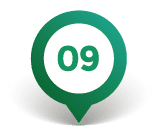
|
|
The art and science of asking questions is the source of all knowledge. Thomas Berger |
At our University, we envision the creation of a community of knowledge-seeking. There is a difference between knowing something and understanding it in depth. How much do you understand the information you have been offered?
Express your questions and contribute to the creation of a vibrant group of exploration of scientific truth.
Do you think you can explain what you have learned? Become an assistant to your instructor and practice explaining and documenting scientific facts.
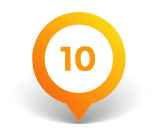
|
|
The art and science of asking questions is the source of all knowledge. Thomas Berger |
At our University, we envision the creation of a community of knowledge-seeking. There is a difference between knowing something and understanding it in depth. How much do you understand the information you have been offered?
Express your questions and contribute to the creation of a vibrant group of exploration of scientific truth.
Do you think you can explain what you have learned? Become an assistant to your instructor and practice explaining and documenting scientific facts.
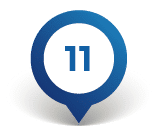
|
|
The art and science of asking questions is the source of all knowledge. Thomas Berger |
At our University, we envision the creation of a community of knowledge-seeking. There is a difference between knowing something and understanding it in depth. How much do you understand the information you have been offered?
Express your questions and contribute to the creation of a vibrant group of exploration of scientific truth.
Do you think you can explain what you have learned? Become an assistant to your instructor and practice explaining and documenting scientific facts.
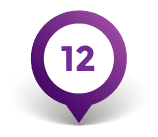
|
|
The art and science of asking questions is the source of all knowledge. Thomas Berger |
At our University, we envision the creation of a community of knowledge-seeking. There is a difference between knowing something and understanding it in depth. How much do you understand the information you have been offered?
Express your questions and contribute to the creation of a vibrant group of exploration of scientific truth.
Do you think you can explain what you have learned? Become an assistant to your instructor and practice explaining and documenting scientific facts.
